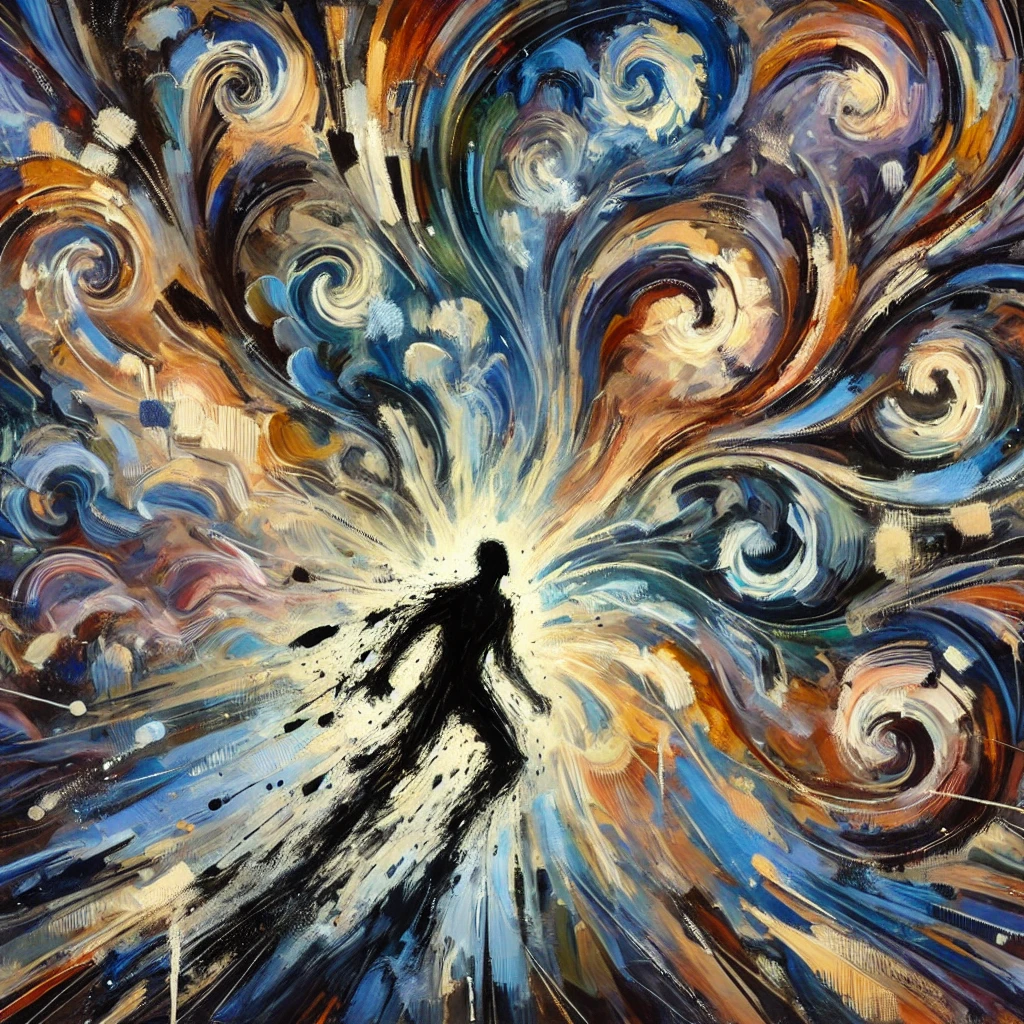let it die
Our traumas can become thought patterns. They run over and over again, living off our own life energy. Untreated, they grow into parasites.
Beware the parasite—it assimilates with you and becomes indistinguishable from your being. While you may be unconscious of its effects, it thrives at your expense.
I had been caught in a recurring negative thought pattern, one that stayed with me for years. It left me looping over ruminations of self-blame, "what-ifs," resentments, and a colorful assortment of other deflating emotions masquerading as complex, solvable problems.
The idea that our thoughts are solvable problems is precarious. Proceed with caution. The danger of rumination is its foundation—the act of ruminating presupposes that by thinking repeatedly about our problems, we will eventually "figure it out." By thinking about something enough, we'll understand it and resolve it.
This is the parasite feeding off our life. It deceives us—it convinces us that feeding it will help us feel better. At some points, it may even give us a fleeting high, a temporary revelation that reinforces the habit of overthinking. Its intermittent reward mechanics keep us hooked.
Spoiler alert: Rumination does not solve our problems. It exacerbates them. There is a time and place to evaluate our past, reflect, and think through our next steps—but these must be limited, so we do not get trapped in the mind's web. The parasite can only spin its web in a world separate from action and life itself.
There was a pivotal moment when a mantra fragment came to me that helped break the cycle. While deep in a meditation ceremony, I considered my rumination pattern, the object of such ruminations that kept me stuck in regret. I asked what I should do about this "problem." I heard back: "Let it die."
The rumination pattern is a parasite that I had been feeding unconsciously. The solution was not to think enough to find a revelation or to reflect enough to gain a new perspective. The solution was to cut off its food source. Any thought, anger, sadness, or energy directed toward that rumination was an act of feeding that parasite.
Knowing that this is a parasite does not stop it from demanding energy. There will be emotions and temptations to ruminate—these are signs of the parasite fighting for life, desperate to survive. But after we’ve done our reflections and work over a tough event in life, we must move on. Let it die.
One of my goals this year has been to minimize overthinking. Less overthinking, more action. As someone who's often lived in the mind, I can vouch for the shift—the world of the mind can be intriguing, but there’s a vast world out there to be enjoyed through action.
What will you do to shift your patterns from thoughts into actions?
